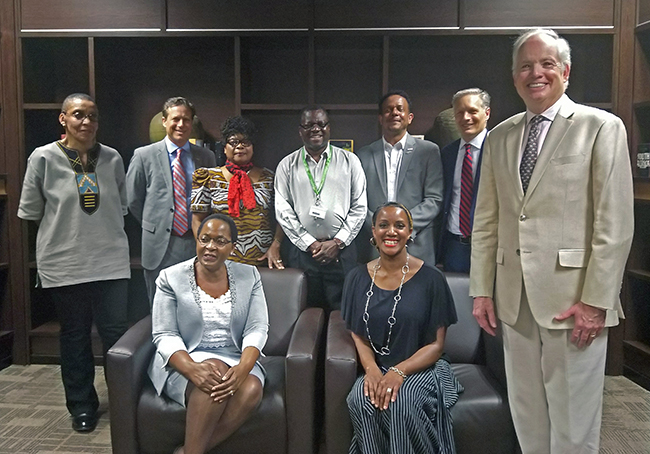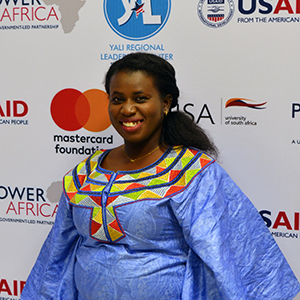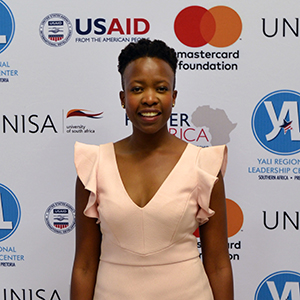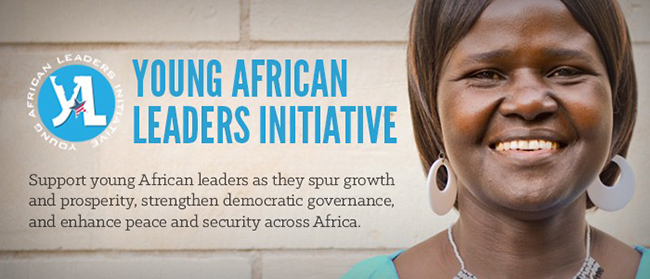News & Events
YALI’s 2018 women graduates set to light up Africa
A bumper crop of 37 hand-picked women from across Africa recently graduated from the Young Women in African Power programme as presented by the Young African Leaders Initiative (YALI) Regional Leadership Centre for Southern Africa (RLC-SA) at the University of South Africa (Unisa).
As a key partner, Unisa was appointed the leader of an education alliance tasked with running the South African centre of former US President Barack Obama’s YALI initiative in 2014. Unisa’s role is providing quality expertise in governance and leadership training, and entrepreneurship support.
The YALI Southern African programme aims to develop multiple cohorts of young African leaders in business and entrepreneurship development, civic leadership, and public management and governance through a hybrid of innovative and complementary approaches. These include contact sessions, online mentoring, online self-paced tuition, networking experiences, industry experience and experiential learning. YALI’s RLC-SA is hosted by Unisa at its Graduate School of Business Leadership in Midrand.
This year, Power Africa joined the RLC-SA in supporting the career development of a new generation of women leaders in the energy sector. Power Africa is a United States government-led partnership coordinated by the United States Agency for International Development (USAID) that aims to double access to electricity in sub-Saharan Africa by 2030. This special opportunity is part YALI’s signature effort to invest in the next generation of African leaders.

Standing, front right: John Groarke, Mission Director, USAID Southern Africa. Seated (from left): Elizabeth Marabwa, Chief Director: Programmes & Projects Management Office, Department of Energy; Erica M Rhodes, Senior Development Outreach and Communications Advisor, Power Africa. Standing (from left): Prof. Gugu Moche, Vice-Principal: Teaching, Learning, Community Engagement and Student Support, Unisa; Andrew Herscowitz, Coordinator, Power Africa; Prof. Chrissie Kaponda, Malawi High Commisioner; Prof. Raphael Mpofu, Acting Executive Dean, Unisa Graduate School of Business Leadership; Robert Rhodes, Office Director: Regional Environment, Education and Democracy and Governance Office, USAID Southern Africa; Richard Nelson, Deputy Coordinator, Power Africa.
The Young Women in African Power Leadership course commenced on 1 October 2018 with the aim to support the career development of a new generation of women leaders in the energy sector. The training equips the young women leaders and better positions them to contribute to Africa’s energy sector.
Said Power Africa Coordinator, Andrew M Herscowitz: ‘These young women bring tremendous talent and drive to the power sector across the continent. We wanted to support a venue where these women could network, engage and learn from experts and one another so that they can help double access to electricity in sub-Saharan Africa.’
A tale of two dynamos
Originally denoting a machine that converts mechanical energy into electrical energy, ‘dynamo’ is nowadays commonly used to describe an extremely energetic person. This description certainly fits all the women attending the YALI graduation event. Two of these remarkable dynamos shared their views on the course they had just completed.

Fatoumata Keita is the Technical Assistant to the Deputy Administrator at the Agency for the Administration and Control of Public Major Projects in Guinea.
‘Although not all of the women on the course are formally employed in the energy sector, each has some link to the sector,’ she said. ‘In my case, I work for the government agency in charge of all public projects in Guinea. So this entails energy projects, but also transport projects, agriculture projects, and so forth. Three things stood out for me while attending the course: the immense potential of Africa, the diversity of the continent, and the fact that women are the heart of the energy sector. The networking opportunities afforded us as part of the course will undoubtedly result in us taking a wider view, beyond the relative isolation of each of our countries.’

Attorney Thokozile Zambane is the Commercial Director of the Asani Group, a diversified industrial holdings company with operations in energy, capital equipment, industrial services, engineering and petrochemical infrastructure services.
Thokozile said that, for her, the biggest take-away from the programme was exposure to peers in other African countries. ‘I think as South Africans we are often, in our thinking, far removed from what’s happening in the rest of the continent. A definite highlight is having spent the past 26 days with women from 25 African countries. It almost feels as if I literally travelled to all of these countries. I am leaving here with an extensive network of contacts that will undoubtedly greatly assist in going cross-border with my business. We are already working on some collaborations and synergies in terms of what we want to do. The programme enabled me to crystallise my vision and I realised that my solution is actually not the electricity itself, but rather youth employment. Going forward I intend using the solution to create jobs, and rolling out our products and services in a way that absorbs our unemployed youth.’
* Packaged by Philip van der Merwe
Publish date: 2018/11/01

